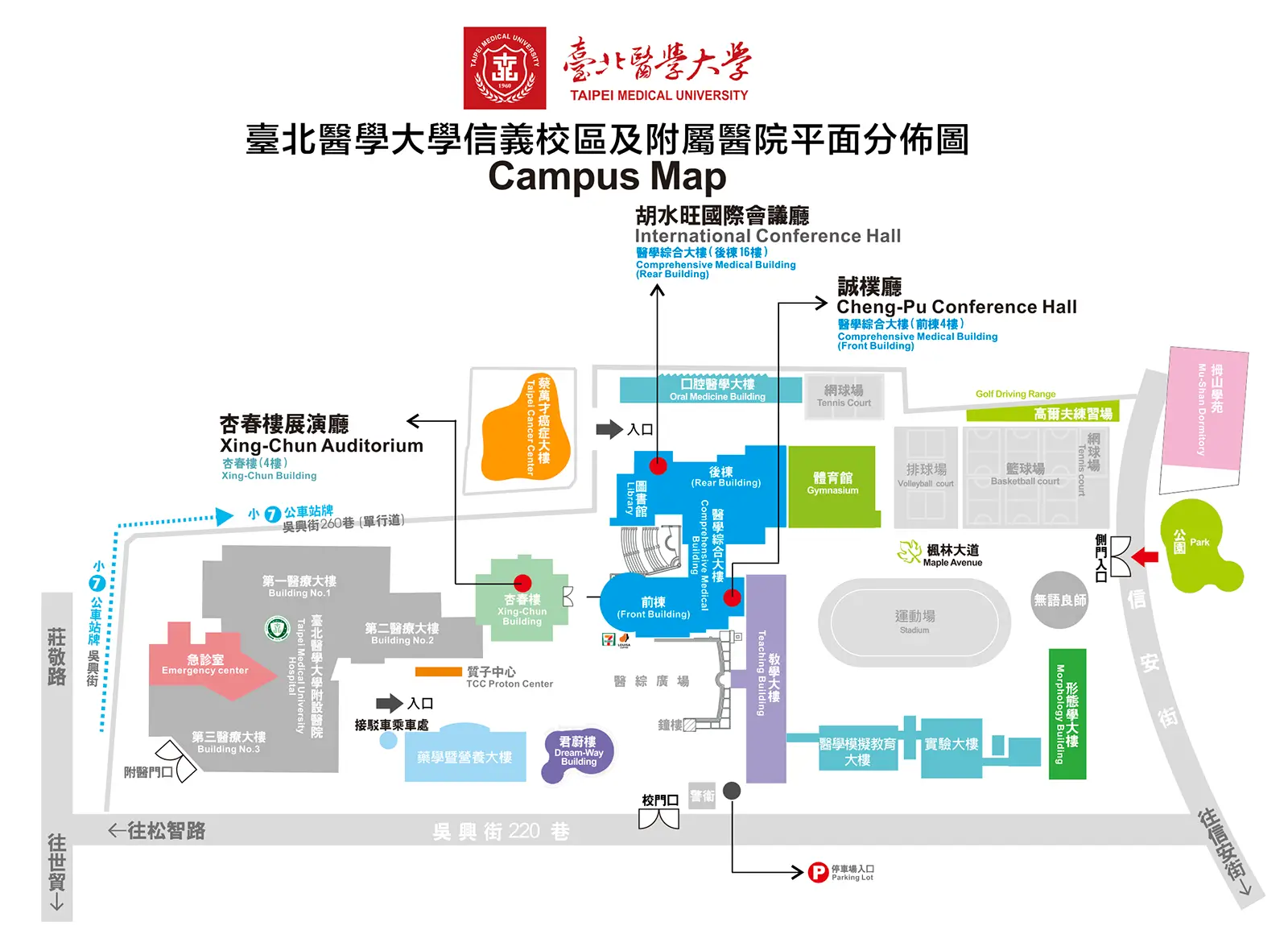The Center for Arts and Humanities (CAH) at Taipei Medical University has been formally established in October, 2015 under the directorship of Professor Dominic Cheung (Chang Ts’o), an endowed chair professor at TMU and a senior faculty of the Dept. of Comparative Literature, and Dept. of East Asian Languages and Cultures at the University of Southern California in the US. CAH has already begun a series of pedagogical programs that include formal classes for regularly enrolled students, lectures, and book publications. These pedagogical aspects will expand and be integrated with various lines of research and faculty recruitment over the next several years.
Courses are taught in the Center under various guises of symposia, General Education classes, and professional short-term workshops. The main objective is to elevate arts and humanities in promoting a higher level of wholistic human life and to integrate the quality as well as the value of life into the field of medical sciences. Renowned scholars and artists in the various field of arts and humanities were invited to lecture to TMU faculties, researchers, students and outside guests on music, paintings, gastrology, gender studies, visual and material culture, natural sciences and botanical illustrations.
Humanities and Arts Center adheres to the founding principle of Taipei Medical University: “Learn to be a good person before becoming a doctor.” It is dedicated to enhancing the humanities and arts literacy of all faculty, staff, and students. The center will focus on two main themes, “Humanities and Arts” and “Life and Arts,” continually planning courses, organizing campus lectures, holding exhibitions and performances, and promoting experiential learning activities, to embody the university’s philosophy of “holistic education.”
Activity and Course Planning
The center will integrate existing faculty and teaching resources within the university, breaking the conventional fixed-time-and-place classroom teaching model. Instruction will be delivered through workshops, field trips, lectures, seminars, and visits, and guest lecturers from both domestic and international backgrounds will be invited as needed. This will create a diverse teaching environment in both Chinese and English. Coupled with feedback mechanisms and publishing opportunities, these activities will be interconnected to broaden learning horizons. Through interdisciplinary connections, breaking classroom boundaries, and emphasizing self-directed learning, students will develop independent thinking and cultural appreciation skills, thereby enhancing the depth of their learning.
Promoting Humanities and Arts
The center continuously operates exhibition and experiential learning activities, gradually observing and reviewing their effectiveness. In the future, the participation scale will be expanded towards developing a "Humanities and Arts Passport" for the entire university. Based on the outcomes of related courses, activities, and lectures, we will collaborate with the university's Continuing Education and Extension Division, the hospital's Medical Education Association, or the Academic Research Department. We aim to offer workshops and advanced courses for the university and hospital faculty and staff, as well as the general public, in the format of quarterly or biannual classes.
The center is located in the Humanities and Arts Shared Space on the fourth floor of the Xing-Chun Building at Taipei Medical University (No.250, Wuxing St., Xinyi Dist., Taipei City 110, Taiwan).
